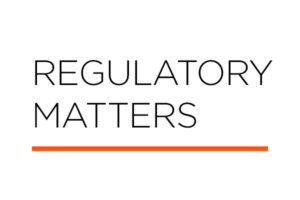 The 2023 United Nations Climate Change Conference (COP28) summit in Dubai is putting sustainability in the spotlight in a region often associated with fossil fuel reserves. However, in coordination with the Gulf Cooperation Council (GCC), a regional political and economic union, several countries in the area have been taking steps to establish regulations governing companies’ disclosure of environmental and social issues. These efforts are often driven by local stock exchanges.
The 2023 United Nations Climate Change Conference (COP28) summit in Dubai is putting sustainability in the spotlight in a region often associated with fossil fuel reserves. However, in coordination with the Gulf Cooperation Council (GCC), a regional political and economic union, several countries in the area have been taking steps to establish regulations governing companies’ disclosure of environmental and social issues. These efforts are often driven by local stock exchanges.
This post provides an overview of the current ESG regulatory landscape in the GCC, with a focus on corporate disclosure requirements.
Bahrain
Bahrain has recently taken several steps to promote sustainability among companies in the region. For example, the Central Bank of Bahrain (CBB) is currently developing ESG disclosure guidelines for listed companies, anticipated to be published in 2023. The CBB aims for the ESG disclosure guidelines to harmonize with a Guidance Note issued in March 2022. The Guidance Note’s objective is to ensure that entities regulated by the CBB stay informed about the latest developments and best practices in the field of climate-related risk management. Additionally, on June 11, 2020, the Bahrain Bourse (“BHB”) issued voluntary ESG reporting guidelines for listed companies, recommending that boards develop a comprehensive ESG report and disclose performance against 32 Key Performance Indicators aligned with the World Federation of Exchanges (WFE), the Global Reporting Initiative (GRI), and the United Nations’ Sustainable Development Goals (SDGs).
Kuwait
In September 2021, Boursa Kuwait issued the ‘Unified Direction for a Sustainable Future’, a voluntary guide for issuers that outlines an initial set of sustainability indicators that also correspond with globally-recognized frameworks, including the United Nations’ SDGs, the GRI framework, and the Kuwait National Development Plan. Updates to the reference component of the guide, incorporating new standards, were released in 2023 (ESG Reporting Guide).
In August 2022, the Capital Markets Authority of Kuwait (“CMA”) issued regulations intended to further embed sustainability goals in the securities market, including the establishment of sustainability-related compliance and reporting requirements within the corporate governance policies of listed joint stock companies, and the disclosure of annual sustainability reports for joint stock companies listed on the Boursa Kuwait.
Oman
In 2023, the Muscat Stock Exchange (“MSX”) issued a voluntary ESG Disclosure Guideline for publicly-listed companies. The MSX indicated that starting 2025, reporting on sustainability will be mandatory.
Qatar
In 2017, the Qatar Stock Exchange (“QSE”) introduced a voluntary ESG Guidance document to assist listed companies in incorporating ESG into their reporting processes. The QSE has indicated that it will likely move towards a mandatory reporting system. In 2018, the QSE launched the first sustainability reporting platform in the region, on which it encourages companies to disclose their ESG reports.
Saudi Arabia
In October 2021, the Saudi Exchange issued ESG disclosure guidelines for listed companies. These guidelines are designed to introduce reporting standards applicable to companies of all sizes to improve the quality and transparency of their reporting or to initiate the practice of reporting.
United Arab Emirates
Companies listed on the Abu Dhabi Securities Exchange (“ADX”) or the Dubai Financial Market (“DFM”) are required to publish an annual sustainability report, in line with Article 76 of the Governance Code issued in 2020 by the UAE Securities and Commodities Authority (“SCA”).
Both ADX and DFM have issued guidelines for ESG disclosure (ESG disclosure guidelines and ESG Reporting Guide, respectively). Listed companies must also report in line with GRI standards.
Recently, the Abu Dhabi Global Market (“ADGM”) unveiled one of the first sustainable finance frameworks in the region, covering regulations for sustainability-oriented investment funds, discretionary-managed portfolios and other investments, alongside disclosure requirements for listed companies.
Region-wide
While each GCC country has been developing its own set of ESG guidelines and requirements, there has also been a broader regional effort to harmonize these regulations in order to promote consistency and comparability in ESG reporting across the region. One significant milestone in this direction has been the introduction of Unified ESG Metrics for GCC Listed Companies on January 9, 2023, by the GCC Exchanges Committee, chaired by the Saudi Exchange.
These ESG metrics encompass 29 standards (10 Environmental, 10 Social, and 9 Governance metrics) that are aligned with the WFE and Sustainable Stock Exchange Initiative. Reporting against these metrics is voluntary, and will not supersede existing ESG disclosure guidelines issued by local stock exchanges.
As the region’s ESG reporting landscape evolves, and in particular as reporting against the Unified ESG Metrics becomes routine, investors as well as other stakeholders can anticipate a broader range of data and insights concerning companies’ key drivers of business value, specifically information on ESG factors and related risks, which can be now assessed in both absolute and comparative terms, allowing for performance evaluation across the region.
